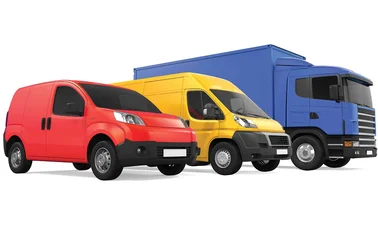
In-depth - commercial: What’s next for fleet?

Upheaval in the motor market caused by improving safety features, the increased price of repairs and a drop in capacity could provide opportunities for brokers. Sam Barrett reports
Unlike commercial property, fleet has seen notable increases in premiums in 2019.
Figures from Acturis point to a 2.6% year-on-year increase in Q3, following more modest increases of 0.9% and 0.2% in the first two quarters of the year.
Many expect this trend to continue in 2020. “Indications are that there will be no let-up in increases to fleet premiums,” says Kevin Hambry, client director at Konsileo.
“Brokers need to carry out extensive marketing in good time at renewal and inception to secure the best terms for their clients.”
Price of safety
A variety of factors are driving the increases. Although it may sound counter-intuitive, improvements in vehicle safety, such as autonomous emergency braking and lane assistance systems, are playing a significant part.
Nick Rossiter, motor damage strategy manager at Allianz Insurance, says it’s a balance between these technologies reducing the risk and severity of accidents and the cost of repairing them.
“Ultimately, these technologies should help to drive claims costs down, but we haven’t reached the tipping point yet,” he explains. “Thatcham predicts a reduction in the next decade, but it will come down to how many vehicles are fitted with these types of technology.”
The revised Ogden discount rate, which shifted from -0.75% to -0.25% in August 2019, has also feed into premium inflation.
“Insurers had anticipated a revised rate nearer 1.0% than -0.25%,” says Mark Armitage, managing director – national broking and placement, UK retail, at Gallagher. “There’s still a bit of pricing to come through for this, but it’s really affecting areas of the market, such as hauliers, self-drive hire and coaches and buses, where there’s a larger potential for personal injury claims.”
Ultimately, these technologies should help to drive claims costs down, but we haven’t reached the tipping point yet
Nick Rossiter
Against this backdrop, and with the cost of reinsurance and the Motor Insurers’ Bureau levy on the up, there are also capacity issues, with some insurers pulling out of the market or restricting appetite.
Ian McCarron, director at McCarron Coates, is concerned this will have wider ramifications. “It could create a worrying situation whereby more MGAs enter the market, offering low premiums designed to build a volume business,” he says.
“These may initially appear attractive propositions, but the proof of their worth won’t be known until claim. That could be a big risk to take.”
Pricing
It’s not all negative though, with a number of changes likely to have a positive influence on pricing.
McCarron expects to see some relief in 2020 as a result of the proposed introduction of the whiplash reforms.
“These, and the new claims portal, should combat the fraudulent and highly inflated claims for personal injury that passenger transport operators have had to absorb for many years,” he explains.
Similarly, there could be some room for improvement on vehicle repair costs, as Rossiter explains: “Repairability is increasingly important and Thatcham is talking to manufacturers with a view to factoring this into the group rating mechanism. This will drive change.”
Furthermore, while some areas are really feeling the pain, Armitage says there is still plenty of competition for the right risks.
“The market is very polarised,” he states. “If a client has a well-managed, well-performing fleet of standard vehicles, they can access competitive rates. If it’s a higher risk area, it can be a struggle.”
Brexit implications
Although the final details are yet to be decided, the UK’s exit from the EU is likely to have a number of implications for the fleet market.
Companies that operate fleets within the EU could face the most significant upheaval, according to Kevin Hambry, client director at Konsileo.
“We may see the reintroduction of Green Cards and the need to notify the insurer of any movements,” he explains. “This will increase the administration costs for all parties.”
‘No deal’ could be particularly painful for these fleet operators, with Hambry saying this would potentially mean drivers requiring international driving permits.
“It could also affect injury claims, with additional costs where claims are handled according to local legal systems,” he adds.
While these additional insurer costs will inevitably lead to higher premiums, even companies with UK-based fleets could see increases as a result of claims inflation.
With many parts imported from the EU, tariffs could push up the cost of repairs. Similarly, if it takes longer to import these parts, this could also lead to additional costs.
Although there is the potential for upheaval and higher costs, Mark Armitage, managing director of national broking and placement, UK retail, Gallagher, is pragmatic about the implications.
“Costs could increase but, if Sterling rallies, this could negate the increases,” he says. “There are so many variables at play, it’s impossible to do more than speculate about how Brexit will affect the market.”
Improving risk
Where a risk isn’t so attractive to insurers, there is the potential for improvement.
Steve Green, director at Anthony Jones, says that brokers need to work closely with fleet clients to help them understand why their premium has increased.
“We need to encourage clients to care a lot more about managing risk,” he adds.
“Ninety percent of accidents are caused by human error, so driver training and safety are imperative. This is exacerbated by a skills shortage among professional drivers, which is forcing companies to choose drivers with less experience.”
As well as advising clients on vehicle selection, especially in terms of performance and safety, technology can also help with risk management.
Telematics enables a fleet manager to track how a vehicle is used, while dashcams can be used to monitor and improve driver behaviour, as well as to provide footage that can be used to prove liability in the event of an accident.
“Businesses want to know how vehicles are performing,” says Nick Mohan, joint managing director at Jackson Lee Underwriting. “I do see the insurance industry becoming more aligned to this technology. There are opportunities for innovation in this space.”
We need to encourage clients to care a lot more about managing risk… Ninety percent of accidents are caused by human error, so driver training and safety are imperative
Steve Green
Claims control
Brokers are also focusing on the claims process to help clients secure cover.
Claims are often reported late, which, as McCarron explains, can mean that credit hire and other costs rack up significantly.
“We analysed the behaviours behind slow reporting in the bus and coach sector and created an education campaign around six claims avatars that include Laidback Leslie and Excuse-Making Mike,” he says. “Swift claims reporting matters, especially in a challenging market.”
Green agrees that getting involved at this point can make a major difference to the costs, pointing to a legal advice service his firm offers clients when they are involved in a fatal accident.
“With higher fines and the potential for custodial sentences, understanding the legislation around road traffic accidents is a must,” he says.
“In this market, brokers have a great opportunity to demonstrate their value through both risk and claims management.”
Only users who have a paid subscription or are part of a corporate subscription are able to print or copy content.
To access these options, along with all other subscription benefits, please contact info@insuranceage.co.uk.
You are currently unable to print this content. Please contact info@insuranceage.co.uk to find out more.
You are currently unable to copy this content. Please contact info@insuranceage.co.uk to find out more.
Copyright Infopro Digital Limited. All rights reserved.
As outlined in our terms and conditions, https://www.infopro-digital.com/terms-and-conditions/subscriptions/ (point 2.4), printing is limited to a single copy.
If you would like to purchase additional rights please email info@insuranceage.co.uk
Copyright Infopro Digital Limited. All rights reserved.
You may share this content using our article tools. As outlined in our terms and conditions, https://www.infopro-digital.com/terms-and-conditions/subscriptions/ (clause 2.4), an Authorised User may only make one copy of the materials for their own personal use. You must also comply with the restrictions in clause 2.5.
If you would like to purchase additional rights please email info@insuranceage.co.uk







